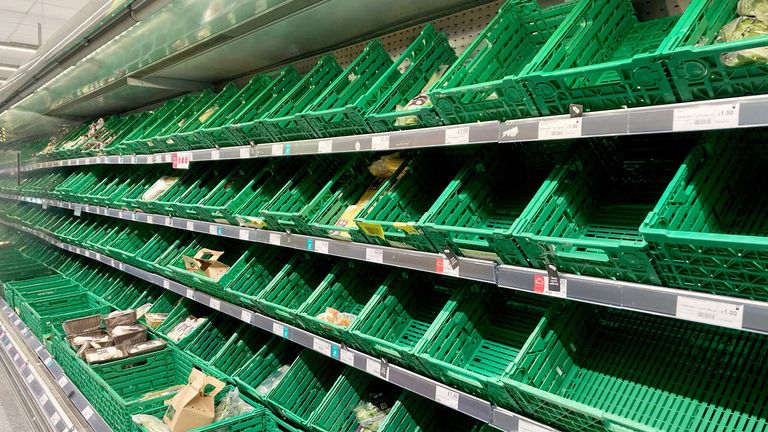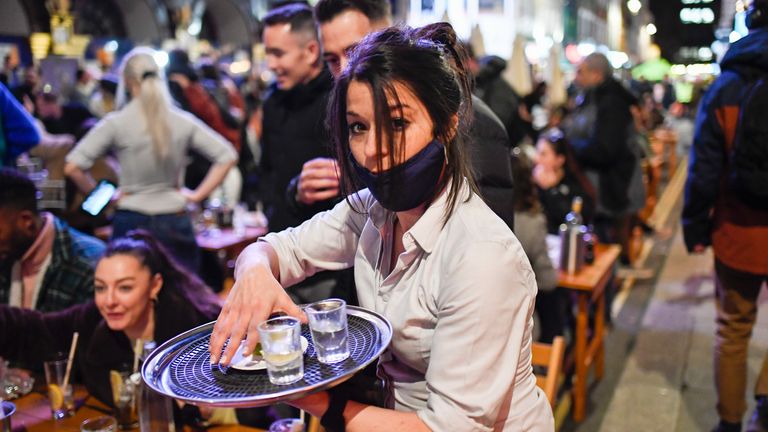Retail sales fell unexpectedly last month partly thanks to shoppers spending more money eating out than in supermarkets, official figures show.
The 0.9% decline in sales volumes in August followed a downwardly-revised slump of 2.8% in July, according to the Office for National Statistics (ONS) - and was the fourth month in a row of decline.
It painted a gloomier picture than forecast by economists - who had expected the sector to stage a partial recovery last month - and added to the sense that the overall recovery is stuttering.
At the same time, retailers have been grappling with supply chain problems and labour shortages - resulting in some empty shelves and inflationary pressures that could persist for months.
The ONS report cited recent data from August suggesting that 6.5% of businesses in the retail industry were unable to get the materials, goods or services they needed.
August's retail figures showed food store sales fell by 1.2% last month "with some evidence to suggest that the further easing of hospitality restrictions had an impact on sales" as consumers "increased their social spending such as eating and drinking at restaurants and bars".
Non-food sales dipped by 1%, driven by department stores as well as sports equipment and computer outlets.
However, fashion bucked the trend - with an increase of 0.7% amid recent evidence that consumers were buying new outfits for the return to the workplace.
Elsewhere, motor fuel demand increased by 1.5% as drivers continued to increase their amount of travel.
Despite the successive months of decline in the headline figure, overall retail sales were slightly ahead of the same month a year ago and 4.6% up on pre-pandemic levels in February 2020, the ONS said.
Paul Dales, chief UK economist at Capital Economics, said: "The 0.9% decline in retail sales volumes in August suggests that the stalling in the economic recovery in July continued into August, although it may partly be due to households spending more off the high street."
Samuel Tombs, chief UK economist at Pantheon Macroeconomics, said: "August's retail sales data bring more evidence that the recovery in consumers' spending has lost considerable momentum in Q3."
He said it may fuel doubts about how soon the Bank of England will be able to start raising interest rates.
Last week, Bank governor Andrew Bailey told MPs there had been some "levelling off" in the recovery.
Latest monthly GDP figures showed the economy grew by just 0.1% in July.
https://news.google.com/__i/rss/rd/articles/CBMiYGh0dHBzOi8vbmV3cy5za3kuY29tL3N0b3J5L3N1cnByaXNlLWZhbGwtaW4tcmV0YWlsLXNhbGVzLWFzLXN0b3Jlcy1zdWZmZXItZGlzbWFsLXN1bW1lci0xMjQxMDE0MdIBZGh0dHBzOi8vbmV3cy5za3kuY29tL3N0b3J5L2FtcC9zdXJwcmlzZS1mYWxsLWluLXJldGFpbC1zYWxlcy1hcy1zdG9yZXMtc3VmZmVyLWRpc21hbC1zdW1tZXItMTI0MTAxNDE?oc=5
2021-09-17 06:56:15Z
52781884593793


Tidak ada komentar:
Posting Komentar